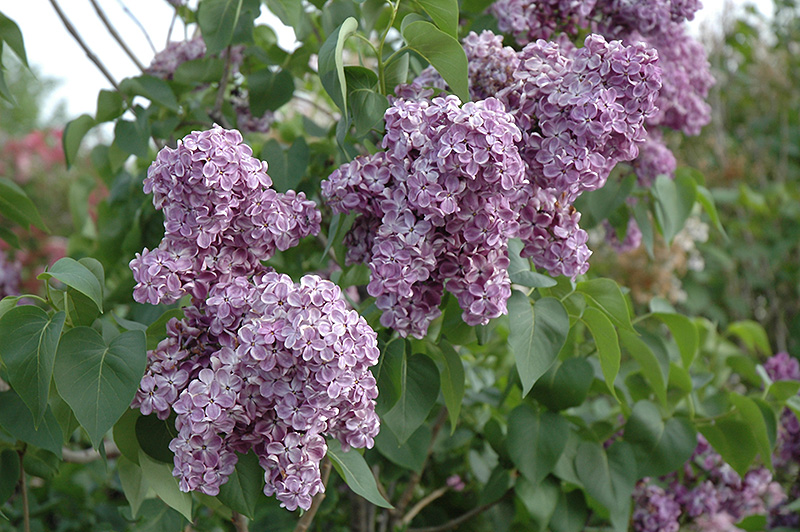>> Home
George Eastman Lilac
Syringa julianae 'George Eastman'
Height: 6 feet
Spread: 6 feet
Sunlight:
![]()
Hardiness Zone: 3a
Description:
A true color breakthrough with gorgeous wine red buds that open to deep cerise-pink flowers; relatively compact when mature which makes it ideal for smaller garden spaces and home landscapes
Ornamental Features
George Eastman Lilac features showy panicles of fragrant hot pink flowers rising above the foliage in late spring, which emerge from distinctive red flower buds. The flowers are excellent for cutting. It has dark green deciduous foliage. The pointy leaves do not develop any appreciable fall color.
Landscape Attributes
George Eastman Lilac is a multi-stemmed deciduous shrub with an upright spreading habit of growth. Its relatively coarse texture can be used to stand it apart from other landscape plants with finer foliage.
This is a relatively low maintenance shrub, and should only be pruned after flowering to avoid removing any of the current season's flowers. It is a good choice for attracting butterflies to your yard. It has no significant negative characteristics.
George Eastman Lilac is recommended for the following landscape applications;
- Mass Planting
- Hedges/Screening
- General Garden Use
Planting & Growing
George Eastman Lilac will grow to be about 6 feet tall at maturity, with a spread of 6 feet. It tends to be a little leggy, with a typical clearance of 2 feet from the ground, and is suitable for planting under power lines. It grows at a slow rate, and under ideal conditions can be expected to live for approximately 30 years.
This shrub should only be grown in full sunlight. It prefers to grow in average to moist conditions, and shouldn't be allowed to dry out. It is not particular as to soil type or pH. It is highly tolerant of urban pollution and will even thrive in inner city environments. This is a selected variety of a species not originally from North America.
